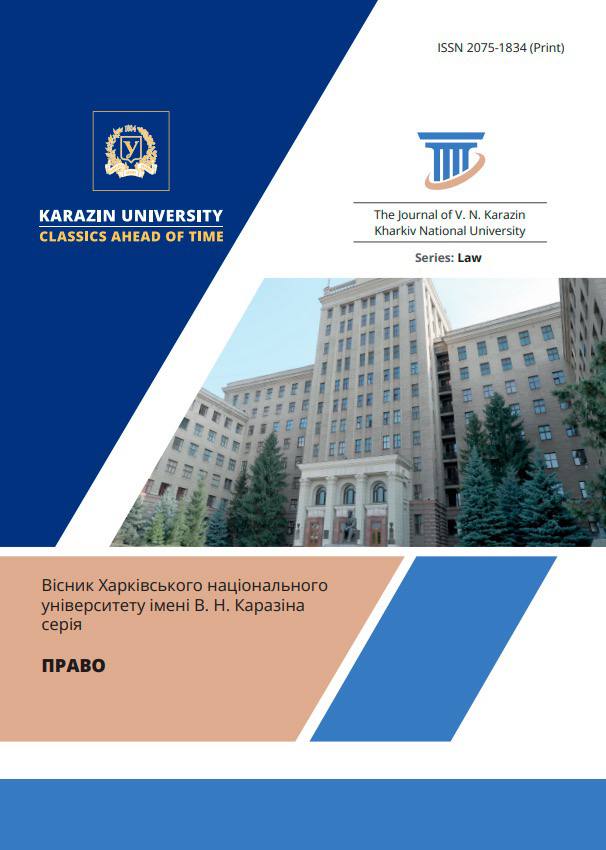HARNESSING ARTIFICIAL INTELLIGENCE FOR HUMAN RIGHTS PROTECTION: ADVANCING SUSTAINABLE PLASTIC WASTE RECYCLING IN NIGERIA
Abstract
This paper explores the integration of artificial intelligence (AI) technologies with human rights considerations in plastic waste recycling, focusing on the context of Nigeria. Using an explanatory design and a basic review of the literature, it examines how AI can enhance human rights protection among workers in plastic waste recycling firms. The paper emphasizes the role of government policies and regulations in ensuring human rights protection, the need for ethical guidelines for AI use, and the potential of AI to improve worker safety and reduce environmental pollution in recycling facilities. Key recommendations for future research include enhancing AI capabilities for waste sorting, integrating Internet of Things (IoT) devices for real-time monitoring, and prioritizing ethics in AI development. Collaboration between stakeholders is identified as crucial, with multi-stakeholder partnerships and policy coherence essential for the effective implementation of AI technologies in plastic waste recycling. In conclusion, integrating AI with human rights considerations in plastic waste recycling is pivotal for enhancing efficiency, reducing pollution, and ensuring sustainable waste management practices. This paper contributes to the growing body of literature on AI and human rights in waste management, offering insights for policymakers, industry stakeholders, and researchers in Nigeria and beyond.
Downloads
References
Ahamed, M. I., Ali, M. E., Zhang, Y., & Islam, M. R. (2020). A novel approach to recycling waste plastics into valuable materials using intelligent algorithms. Journal of Cleaner Production, 121794.
Barreto, L. et al. (2020). Improving sorting line efficiency in a waste management facility using a robotic solution. Procedia Manufacturing, 51, 514-519.
Biswas, A., Dey, N., & Ashour, A. S. (2021). AI and IoT integration in waste management: Opportunities and challenges. Future Generation Computer Systems, 117, 231-244.
Bryson, J. J., Diamantis, M. E., & Grant, T. D. (2017). Of, for, and by the people: The legal lacuna of synthetic persons. Artificial Intelligence, 251, 44-60.
Brearley, M. (2020). Plastic recycling and human health impacts: A review. Environment International, 134, 105283.
Diakopoulos, N., Friedler, S. A., Arenas, M., Barocas, S., & Sandvig, C. (2018). Principles for Accountable Algorithms and a Social Impact Statement for Algorithms. arXiv preprint arXiv:1803.09010.
European Union. (2016). General Data Protection Regulation (GDPR). Retrieved from https://eur-lex.europa.eu/eli/reg/2016/679/oj
Ezemonye, L. I., & Opeolu, B. O. (2017). Environmental pollution and health risks of plastic waste disposal in developing countries like Nigeria. Journal of Health and Pollution, 7(15), 32-42.
Floridi, L., Cowls, J., Beltrametti, M., Chatila, R., Chazerand, P., Dignum, V., ... & Luetge, C. (2018). AI4People—An ethical framework for a good AI society: Opportunities, risks, principles, and recommendations. Minds and Machines, 28(4), 689-707.
Geyer, R. et al. (2017). Production, use, and fate of all plastics ever made. Science Advances, 3(7), e1700782.
ILO. (2013). Child labor in Nigeria: An overview. International Labour Organization.
Jambeck, J. R., Geyer, R., Wilcox, C., Siegler, T. R., Perryman, M., Andrady, A., ... & Law, K. L. (2015). Plastic waste inputs from land into the ocean. Science, 347(6223), 768-771.
Khan, M. H., Khan, H., Ullah, R., Ullah, F., & Ghani, S. (2020). Artificial intelligence: A key to solve solid waste management problems. Journal of Cleaner Production, 256, 120437.
Liao, Q., Zhao, Z., & Liu, Y. (2020). Fairness-aware task allocation for human-agent teaming in waste recycling systems. Sustainable Cities and Society, 54, 101995.
Mittelstadt, B. D., Allo, P., Taddeo, M., Wachter, S., & Floridi, L. (2016). The ethics of algorithms: Mapping the debate. Big Data & Society, 3(2), 205395171667967.
Nzeadibe, T. C., Igbokwe, E. M., Njoku, J. D., & Ogu, V. I. (2019). Plastic waste and its management in Nigeria: A review. Environmental Quality Management, 28(3), 45-56.
Oduro-Appiah, K., Gbeddy, G., & Kuma, J. (2018). Plastic waste management in Ghana: A case of inadequate collection, disposal and recycling. Environment, Development and Sustainability, 20(5), 2279-2293.
Ogungbemi, A., Gbadegesin, A., Ogungbemi, A., & Oyetunji, O. (2020). Socio-economic and environmental implications of plastics consumption and waste management in Nigeria. Journal of Environmental Management, 254, 109800.
OECD. (2018). The role of digitalization in supporting a transition to more resource-efficient and circular economies. Organization for Economic Co-operation and Development.
Osagie, I. E., Adekunle, I. M., & Osagie, A. I. (2019). Occupational health and safety management practices and hazard exposure among plastic waste handlers in Benin City, Nigeria. Journal of Environmental and Public Health, 2019.
Ren, J., Xu, Z., Chai, K., & Lin, C. (2018). Automatic sorting of plastic bottles using an adaptive neuro-fuzzy inference system. Waste Management, 80, 112-122.
Schecter, A. et al. (2018). Health and environmental assessment of the impact of e-waste recycling on metal exposure and health outcomes in Nigeria. Environmental Research, 161, 212-224.
Selvam, J., & Shanmugasundaram, J. (2021). AI and IoT in Waste Management: Challenges and Future Directions. IOP Conference Series: Materials Science and Engineering, 1074(1), 012114.
Stirling, A. (2008). "Opening up" and "closing down": Power, participation, and pluralism in the social appraisal of technology. Science, Technology, & Human Values, 33(2), 262-294
United Nations. (n.d.). Universal Declaration of Human Rights. Retrieved from https://www.un.org/en/universal-declaration-human-rights/
United Nations Environment Programme. (2018). Single-use plastics: A roadmap for sustainability. Retrieved from https://wedocs.unep.org/bitstream/handle/20.500.11822/25496/singleUsePlastic_sustainability.pdf
United Nations Human Rights Office of the High Commissioner. (2020). Environment and human rights. Retrieved from https://www.ohchr.org/en/issues/environment/pages/environmentindex.aspx
Wajid, N. et al. (2021). Optimal operational scheduling of plastic recycling plant using deep learning and machine learning. Journal of Cleaner Production, 295, 126388.
World Bank. (2018). What a waste 2.0: A global snapshot of solid waste management to 2050. Retrieved from https://openknowledge.worldbank.org/handle/10986/30317
Zhou, C., Xu, J., Zhang, J., & Shen, S. (2020). A review of artificial intelligence technologies for solid waste recycling. Journal of Cleaner Production, 123609.
Citations
Empowering informal plastic recyclers: addressing socio-economic challenges and human rights awareness in Ogun State, Nigeria
Solaja Oludele Mayowa, Osifo Omosat Kelly & Amoo Olamide Faruq (2024) BMC Environmental Science
Crossref
Copyright (c) 2024 Олюделе Соладжа

This work is licensed under a Creative Commons Attribution 4.0 International License.




